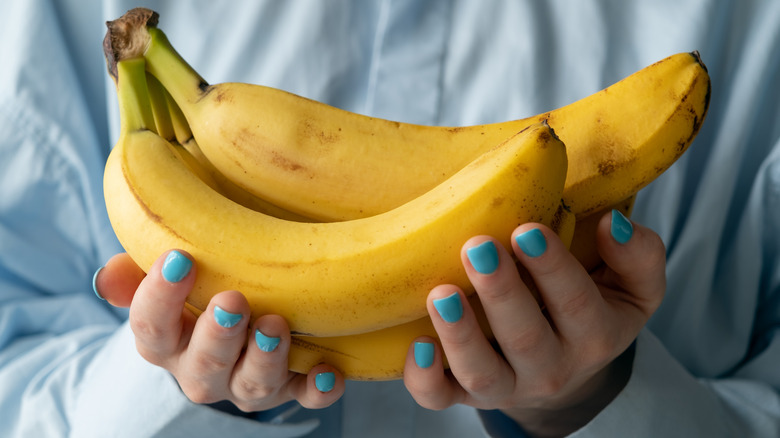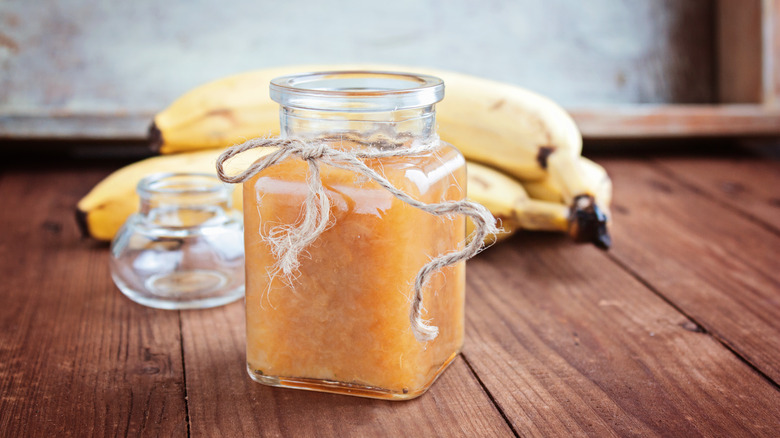Why You Shouldn't Try To Make Canned Bananas
A pile of bananas, unloved and quickly spoiling on the kitchen counter, is a familiar sight to many cooks. "Oh, we'll make banana bread," we tell ourselves ... but more often than not, those bananas end up in the trash. You might wonder, then, whether there's a way to preserve them. Canned fruit can be a fantastic way to stretch produce for the home cook, plus it can make a delicious pie filling. But can you can bananas at home?
The short answer is no — at least not whole ones. Why? Well, it all has to do with a little bacterium by the name of Clostridium botulinum. This pesky little fella can release toxins that lead to botulism, a rare but extremely nasty disease. And one of the more common causes of botulism is — you guessed it — improper home canning.
Now, that's not a reason to be afraid of canning. Done correctly, it can be completely safe. However, when it comes to bananas, it's a no-go. Bananas are a low-acid food (meaning they have a pH above 4.6), which the CDC recommends avoiding if you're a home canner. Because there's not enough natural acid in the fruit to deal with the botulinum, you would need the extreme temperatures of pressure canning to deactivate the bacteria. But even for the most experienced home canners, there's not enough research to determine the correct process for pressure canning bananas to make them safe. It's better to steer clear.
There are other ways to preserve bananas at home
Though it's inadvisable to can whole bananas at home, that doesn't mean you're out of options when it comes to preserving them. If your goal is to preserve the whole fruit, freezing them is your best option. While some people claim you can just freeze food indefinitely, that's not the case — but frozen bananas will last a good three to six months before their quality begins to deteriorate.
Preserves are another great option — banana jams and chutneys are both delicious. You could make the former by cooking down mashed bananas and strawberries into a yummy, sticky spread. This is also a safe way to can bananas at home: The acidity of the strawberries and the lemon juice added during the jam-making process deactivate the botulinum, ensuring you can safely enjoy the fruits of your labor.
Alternatively, you could combine bananas with other fruits, curry paste, sugar, and vinegar to make a banana chutney; it's a perfect casual condiment. If you're a fan of Filipino cuisine, try making your own banana ketchup — a crucial component of Filipino barbecue sauce. Pair it with chicken or beef jerky skewers for a taste of Manila.
There's really no shortage of ways to preserve bananas. So, what are you waiting for? Give those sad bananas on your counter a new lease on life! They deserve it, and so do you.


